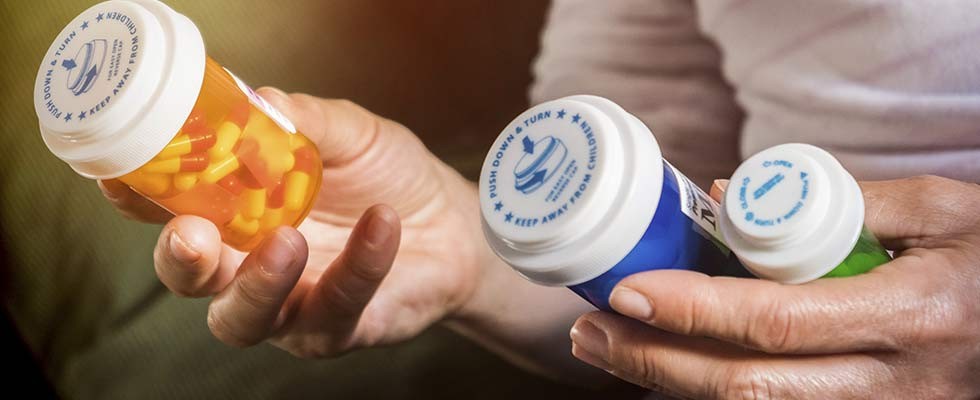
COVID-19 continues to rage across the country, changing life as we know it. While doctors and scientists are searching for medical solutions, individuals have sought out alternatives to regain a sense of normalcy and routine. This includes the way people shop, conduct business and, most importantly, how they take care of themselves and their loved ones.
For young, healthy Americans, the main concern has been preventing themselves from getting the virus while still concentrating on earning a living and living life as normally as possible given the circumstances. But the pandemic has hit seniors, who are among the most vulnerable to COVID-19, particularly hard as lockdown restrictions and social distancing have threatened their independence and have made them feel more lonely and isolated than ever. Seniors have struggled to adapt to the current world, and it is important not to take focus or attention from them in this time of need.
With more than 16 million seniors in America living independently, it is a challenge to keep them independent and out of nursing homes for as long as possible, especially when communal living facilities have become rapid hotspots for the novel coronavirus—and some of the most deadly. One way to keep them safe at home is through remote medicine and remote caregiving when it comes to prescription management.
Seniors face five key medication challenges that need to be addressed:
- Delivery: Elderly people not only feel less comfortable venturing out to the store, but sometimes also forget to fill their prescriptions, possibly leading to medical complications.
- Prescription organization and packaging: Customers should not have to be their own pharmacists when organizing and receiving their medication.
- Reminder systems: Anybody might miss a dose once in a while, but seniors require additional assistance to ensure they remember which dose to take when.
- Involved and engaged family: Family is crucial to help seniors maintain better medication adherence.
- Lack of remote communication with the pharmacist: With some seniors taking 10 or even 15 different medications, they need to have access to pharmacists when they are not comfortable going out.
Let’s address these in more detail.
1. Delivery
Statistics show that 20%-30% of prescriptions in the United States never get filled or picked up. While this could happen for a variety of reasons, it should never be because an elderly person simply forgot to drive to the store to pick it up or was unable to do so. Today, seniors who are encouraged to self-isolate deserve to have their medication brought to their homes to ensure they are maintaining their health and independence.
2. Packaging
With most pharmacies today, patients need to sort their own medication into daily or weekly dosages. This can be incredibly difficult and overwhelming for the elderly, as some take up to 15 different prescriptions a day. Due to the pandemic, seniors may not be able to have a family member or caregiver come to their homes to help them sort their medication for fear of exposure, leaving them to do it alone. This not only overwhelms but also endangers users, leading to thousands of deaths a year due to accidental nonadherence to medication schedules and dosing.
3. Reminders
The current pharmacy system lacks measures to ensure that patients are remembering to take the medication they are prescribed. As seniors age, they can become increasingly forgetful, but when it comes to their medication, they cannot afford to forget to take something or forget whether they took a drug, potentially leading to double-dosing. They deserve a better way to have this managed, and pharmacies should offer solutions and devices that will alert them.
4. Family Involvement
Family members will always want to play a role to ensure that their loved one is taken care of, and medication management is no different. Family members want to be notified in real time whether their parent or grandparent is adhering to prescribed medication regimens and also want clear, accurate data on their medication intake habits. Offering this will empower and encourage family members to be more engaged in the lives of their elderly loved ones.
5. Communication
Lastly, seniors need better communication capabilities with their pharmacist via telehealth. With many seniors taking more than five pills per day, they need to remain assured that no medication conflicts with another, and they want someone there to walk them through their daily prescription regimen. This service should come as standard and delivered in a way that seniors will understand how to use it properly. Many seniors are tech-savvy, but care should be taken to also reach the tech-averse. Additionally, the pandemic has shown the great possibilities that telehealth can have, and pharmacies should implement these solutions to better communicate with their patients.
Conclusion
Seniors today need an all-in-one pharmacy solution that can address and solve the key challenges they face. Pharmacies need to step up and implement new technology to offer better services while providing them at no additional cost to the customer. They need to also work and be compliant with a variety of medical insurances including Medicare to allow any customer to use this service.
